| title: |
| Sozialistische Schule zwischen Anspruch und Wirklichkeit: die Pädagogischen Lesungen
als ungehobener Schatz zur Erforschung von Unterricht in der DDR |
|
| other title: |
| Socialist school between claim and reality: the Pedagogical Readings as unretrieved
treasure for investigating GDR teaching
[translated]
|
|
| host title: |
|
| contributing persons: |
|
| |
| abstract: |
|
Das Format Pädagogische Lesungen umfasst eine institutionalisierte Art des Erfahrungsaustausches
von Pädagog*innen in allen Bereichen des DDR-Bildungswesens (Kindergarten, allgemeinbildende
Schulen, Hilfsschulen, außerschulische Pädagogik). Dabei wird die schriftliche Niederlegung
eigener Erfahrungen sowie innovativer Vorschläge zur Gestaltung pädagogischer Prozesse
ergänzt durch die öffentliche (Vor-)Lesung für ein Fachpublikum praktisch tätiger
Pädagog*innen in großangelegten zentralen Weiterbildungsveranstaltungen. Durch einen
zentralistisch organisierten fachlichen Selektionsprozess gelangten zwischen 1955
und 1989 über die Pädagogischen Kreis- und Bezirkskabinette ca. 9500 ‚erfolgreiche‘
Lesungen bis zur Popularisierung und danach in die Pädagogische Zentralbibliothek
im Haus des Lehrers Berlin. Der Bestand, der Lesungen aller Unterrichtsfächer ebenso
umfasst wie jene zu allgemeinpädagogischen bzw. psychologischen Fragen, ist bis heute
vollumfänglich erhalten. [...] Mit diesem Beitrag soll ein erster Schritt zur Analyse
dieses in höchstem Maße originellen Quellenmaterials unternommen werden, indem zunächst
das Format sowie dessen Entwicklung im Rahmen der DDR-Bildungspolitik kontextualisiert
wird. Weiterhin werden die Kriterien, die an erfolgreiche Lesungen angelegt wurden,
sowie der überlieferte Schriftverkehr im Kontext der Begutachtung einer ersten Betrachtung
unterzogen, um hernach das Maß der administrativen sowie der bildungspolitischen Lenkung
zum Verfassen und zur inhaltlichen Gestaltung zu umreißen. Im Ergebnis wird thesenhaft
auf einige Potenziale verwiesen, die das Quellenmaterial hinsichtlich weiterer Forschungsperspektiven
bietet.
[German] |
|
The term Pädagogische Lesungen (Pedagogical Readings) refers to an institutionalized
experience exchange between educators from all spheres of the GDR education system
(kindergarden, general education schools, special needs schools, extracurricular pedagogy).
The written text on own experiences, including innovative proposals on how to design
educational procedures, is complemented by the public reading in front of an expert
audience of practically active educators in large-scale further education events.
It were about 9,500 ‘successful’ pedagogical readings that were popularized via a
centrally organized professional selection process from 1955 to 1989 and forwarded
to the Pedagogical Central Library at the House of Teachers in Berlin. The stock that
includes readings related to all subjects as well as those on general educational
or psychological issues has been completely preserved until today. [...] The present
article shall undertake a first step towards analyzing this extremely inventive source
material by contextualizing the format as well as its development in the context of
GDR education policy. Furthermore, the criteria applied to successful pedagogical
readings and available correspondence related to their evaluation will be taken into
a first consideration to, afterwards, outline the degree of political and education
history control applied on the elaboration and content development. The result will
develop hypotheses on the potential the source provides regarding a broader research
perspective.
[English] |
|
| document type: |
|
| institution: |
| Faculty of Arts and Humanities |
|
| language: |
|
| subject class (DDC): |
| 370 Education |
| 943 General history of Europe Central Europe Germany |
|
| extent: |
|
1 Online-Ressource (19 Seiten)
|
|
| |
publication /
production: |
Rostock
|
Rostock: Universität Rostock, Arbeitsstelle Pädagogische Lesungen
|
|
01.03.2019
(normalised date: 2019) |
|
| statement of responsibility: |
| Katja Koch, Kristina Koebe, Tilman von Brand und Oliver Plessow |
|
| |
| identifiers: |
|
| |
| access condition: |
|
| license/rights statement: |
all rights reserved
This work may only be used under the terms of the German Copyright Law (Urheberrechtsgesetz). |
|
|
| RosDok id: |
rosdok_document_0000016814 |
| created / modified: |
18.08.2020 / 08.08.2023
|
| metadata license: |
The metadata of this document was dedicated to the public domain
(CC0 1.0 Universal Public Domain Dedication). |
 access
access

 all rights reserved
all rights reserved